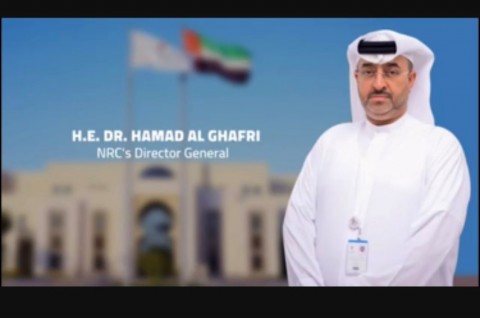On the 24th February 20121, the National Rehabilitation Centre Abu Dhabi (NRC) today announced that has launched the first International Technology Transfer Center (ITTC) in the Middle East Region, which aims to benefit those suffering from substance abuse, in UAE and the region.
The National Rehabilitation Center Abu Dhabi, which is a World Health Organization (WHO) Collaborating Centre of excellence in the field of substance abuse in the Middle East, is a regional training hub for International Narcotics and Law Enforcement Affairs (INL) and Colombo Plan training programs. The implementation of ITTC ensures that what is in the training programs are put in place not just in the UAE, but also in the wider region.
Developed by the U.S. Department of State’s Bureau of INL’s Drug Demand Reduction Agenda, the ITTC Network develops and strengthens the workforce, organizations and systems that provide substance use prevention, treatment, and recovery support services.
Based in universities and research centers, ITTC’s utilize a variety of strategies to accelerate the implementation of scientifically based and culturally appropriate practices. ITTC’s currently exist in Vietnam, Ukraine, and South Africa, with more nations joining the center in the near future. The Centers are brought together in a coordinated Network through the leadership of the ITTC Network Coordinating Office, in partnership with the International Consortium of Universities on Drug Demand Reduction (ICUDDR).
His Excellency Dr Hamad Al Ghafri, Director General of the NRC, launched the NRC ITTC in a virtual global event on Wednesday, February 24th 2021, which was attended by senior officials from the U.S. Governments Department of State experts in the field and the intergovernmental organization the Colombo Plan. The launch included a key presentation by Dr Dean Fixen, the Implementation Scientist and Director, Active Implementation Research Network, Inc., who is widely considered as the “father of implementation science.”
His Excellency Dr Ghafri highlighted that most of the research and technologies in the field of addictions is developed in the U.S. and the West, adding that cultural adaptation of interventions developed in the West and in other countries to a particular country and culture, is thus vital.
“Since our formation, NRC set the ambitious target of becoming a center of excellence in the field of drugs and alcohol prevention, treatment and rehabilitation. While we knew that this was an aspirational goal, we also knew that it was not impossible,” he said.
“We are proud that the NRC is partnering with the ITTC’s. This is a collective milestone. The efforts of building this collaboration date back to earlier 2010, when there was cooperation between the NRC and INL’s of the U.S. Department of State,” he noted.
His Excellency pointed out that it is a natural progression for NRC to become an ITTC certified training center: “We are able to continue and build upon the training efforts that were started earlier in 2010. In doing so, we are ensuring the implementation of training and increasing the quality of provision here in the UAE and within the region.”
“Our specialism is one that is continuously evolving. There is a necessity to be kept up to date with recent developments in the this rapidly growing field. The nature of this led to the development of training that includes evidence-based research such as the Universal Treatment Curriculum (UTC) and the Universal Prevention Curriculum (UPC),” His Excellency concluded.

